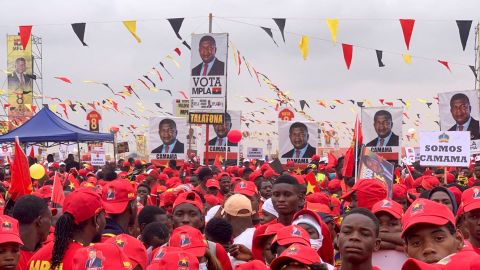The election in Angola on Wednesday is expected to be the most tightly contested since the country’s independence in 1975.
The MPLA has been in power for more than four decades, it may be difficult to envisage it losing its perch at the top. However, it is dealing with a rising tide of discontent, fueled by high levels of poverty and unemployment.
The Problem
Despite Angola’s oil and mineral richness, many people have not benefited from it.
And, while 20 years of peace following a protracted civil war have been welcomed, they have not resulted in the gains that many had hoped for.
What’s happening now
There are eight competing parties, but the MPLA’s major opponent is Unita, a former rebel movement. The big number of MPLA challengers could split the opposition vote, but Unita has forged an informal partnership with civil society organisations and activists to extend its appeal this time. UNITA is backing on the dissatisfaction of almost 15 million voters to climb to power
Voters will cast one ballot, and the party leader with the most votes will be elected president.
Luanda, the capital, is covered in party propaganda. Large billboards featuring presidential candidates’ faces are strewn throughout the city, and on election days, the streets are filled with music in an attempt to entice voters.
The MPLA’s red, black, and yellow dominate, with the phrase “the might of the people.” Unita’s red and green colours can also be seen on posters throughout the city, declaring that “the time is now”
Angola’s Touchy Past
The Angolan Civil war lasted from 1975 until 2002, with interludes. The battle began almost immediately after Angola gained independence from Portugal in November 1975. The conflict was fought between two former anti-colonial guerrilla forces, the communist People’s Movement for the Liberation of Angola (MPLA) and the anti-communist National Union for the Total Independence of Angola (UNITA).
The 27-year war can be loosely split into three phases of major warfare, from 1975 to 1991, 1992 to 1994, and 1998 to 2002, with fragile moments of quiet in between. Between 500,000 and 800,000 people had died by the time the MPLA won in 2002, and over one million had been internally displaced.
The war crushed the economy and other institutions and for the past 20 years, they are finally getting stable.

